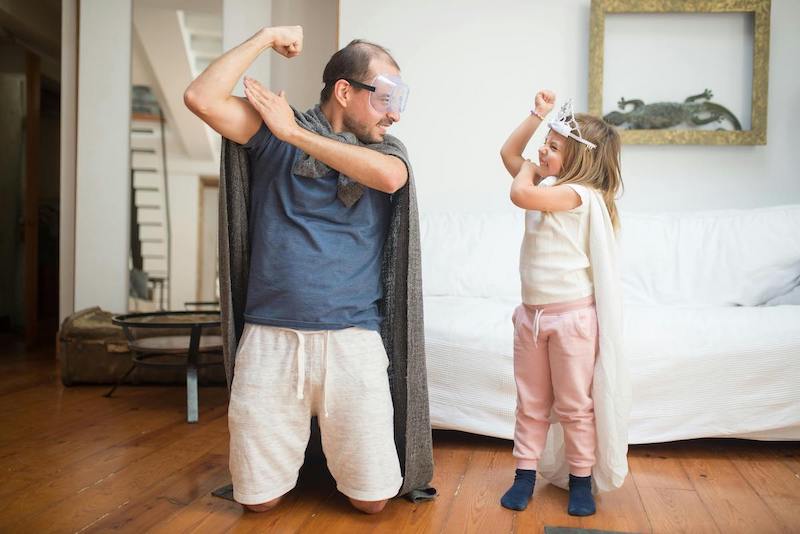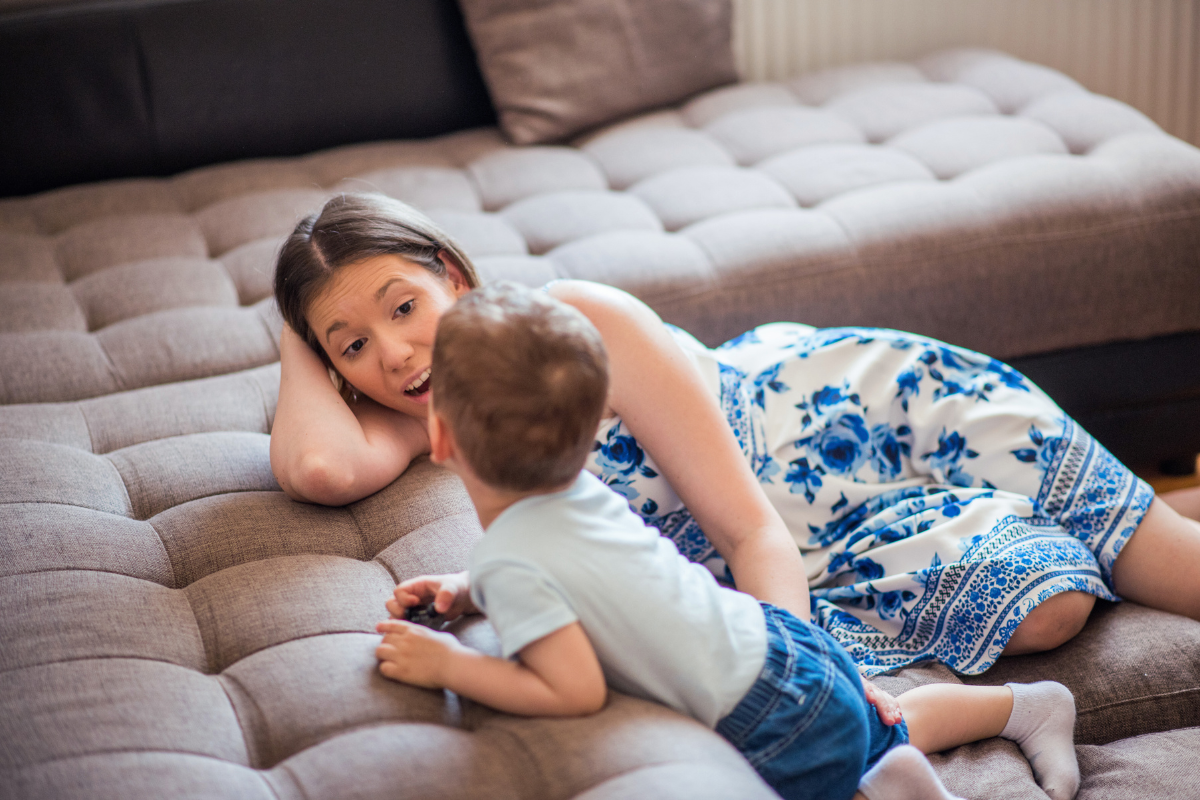Parenting often seems like a series of small goals. Get your baby to latch. Get your 1-year-old to eat peas. Get your toddler to poop in the toilet. Teach your kindergartener to read. Get your middle schooler to hand their homework in on time. It’s one small, goal-oriented step after another.
It’s no wonder that when parents ask me questions (which happens all the time), they are all about these goals. How do I get the baby to latch? How do I make my kid eat vegetables? What will it take to get my child into college? Whatever our current question is, it is what is front-of-mind in the moment. And when we get through one of these milestones, it’s on to the next.

I started thinking about the question of goals in parenting the other day, and I got curious what people would say if I asked them to zoom out. So I posed this question on Instagram.
Think about the future. Your child is in their 30s. You look at who they are, what they have become, what their life is like, how you interact with them — the whole picture. And you think: “I feel like I did a good job.” What is it that you are seeing that makes you think that?
I told people to say as much or as little as they would like. Almost 7,000 people responded. Here’s what you said in response, and a few of my takeaways.
What you want for your kids
What were the big-picture concerns you all had? Were they “I’ll know I did a good job if my child eats peas?”
No, they were not. Looking at the responses together, there were several big themes.
Happiness: You want your kids to be happy, period. Whatever that means to them. This doesn’t mean they aren’t ever facing struggles but that they know how to work through them and are, generally, happy most of the time.
Kindness: You want your children to be kind, especially to those who need it most. This includes in their day-to-day lives, but also in giving back through volunteering and other community activities.
Independence and self-sufficiency: Your children are living on their own, able to manage their own lives. Financial well-being came up here — the hope that children will be stable and support themselves.
Relationships: You want your kids to have people they love in their life, who love them back for who they are. And you want your children to talk to you, to love you, to still be in your lives.
Because I like a good graph and I know you do too, here’s a frequency count of the top 10 words people mentioned in their answers. You can see all the themes above come out.
In your own words
Many of you wrote incredibly beautifully about your hopes for your children. I read them all, and I wanted to surface a few here.
- First, they want to come home, we have a relationship. Second, I have two sons, so it’s important to me that I’ve seen them cry as adults, knowing that they feel safe enough to both feel this emotion and show it to me as their mom. Third, and I would never put this on them, but I hope that they want to have kids. I hope that we’ve made being a parent seem like the best job in the world and that they want to be ones too!
- She comes home constantly, eats all my food, and feels comfortable totally roasting me — making fun of me to my face, constantly bringing up silly things I’ve done (“remember when mom…”) and teasing me for being an old lady. I want her to feel so comfortable and loved that she can say anything to me and knows I’ll just roll my eyes and laugh along.
- Kindness, tolerance (to stress, curveballs, disappointment), boundaries. Advocating for themselves and others, but for themselves first. Supporting others, and especially their siblings. Genuinely happy. Frequently adapting to change. Healthy, physically and mentally. Hopefully they like to cook, but ok if not 😉
- My child is independent and responsible. They’re working towards something, whether that’s raising a family, working in a career, or just trying to make something better (their home, their community, the world, doesn’t matter) — I guess you’d call this some kind of fulfillment or feeling like they’re living for some kind of reason/purpose beyond themselves. In my ideal scenario, they’re also capable and able/willing to help those less capable than they are, in whatever form that takes (mentoring junior employees in their field, checking in on the older neighbor after a big storm, volunteering, etc.).
If I had to summarize, it’s this person, who hits all of the core messages in one.
They have healthy, safe relationships (romantic, platonic, familial, etc.), they’ve completed enough education/skill that they can have a job that makes them financially stable, they aren’t scared of new experiences, they can handle frustrations, have patience, resiliency, and grit. And they want me to still be in their lives in a meaningful way!
What’s the point of big-picture parenting?
Many of these quotes and ideas are lovely, but … what’s the point of taking this perspective?
The day-to-day of parenting is about narrow goals and, honestly, that is necessary. We do need to figure out how to feed our kids. They do need to poop in the toilet eventually. Many decisions must be made every day. The bulk of parenting is about small-picture problem-solving. Recognizing that you want your child to be a kind person when they are 30 does not actually solve the problem that they take three hours of constant attention to fall asleep, and you do need to solve that problem.
And still, there are two main reasons to step back to think about the big picture, at least sometimes.
Reminding ourselves what we are really trying to achieve can provide us with much-needed perspective when we’re in the trenches. It’s not that the small decisions aren’t important, but taking a wider view helps us see that there are many small decisions, and this is just one of them.
More importantly, stepping back can help us shape our choices, since sometimes a focus on immediate goals can interfere with the long term. As an example, we can often get in the way of developing independence for our kids when we refuse to give them responsibility for things like remembering their homework. A narrow focus on “must achieve 100% homework on time” can get in the way of a broader goal of having our kids learn from their mistakes.
So if you haven’t already, I’d urge you to think about your answer to this big-picture question. Write it down, save it somewhere (or share it in the comments), maybe talk about it with your partner. And then when you’re really in it as a parent — when the narrow goals seem to be taking over your life — read it and take a breath.
P.S. I want to give the last word here to one of the grandparents who wrote in from the other side:
This is not theoretical for me. My daughter is in her 30s (I follow you because of our grandson). I am blown away at how capable a parent she is. That is the first answer that came immediately to mind.
Community Guidelines















Log in
My father-in-law used to tell us that when the kids were young and people would talk about “raising kids” he would correct them and say that they weren’t raising kids; they were raising adults. I love this story. Raising a good human is the goal. A good human that wants to spend time with me is the dream : )
This made me cry happy tears. (Wow, becoming a mom has made me so teary!!) Thank you for compiling this. It’s a great reminder and makes me not only think about my goals as a parent, but also how I see my parents today.
OK, but how DO I make sure she wants a relationship with me at as an adult?? Haha.
Follow Nedra Tawwab on Instagram!